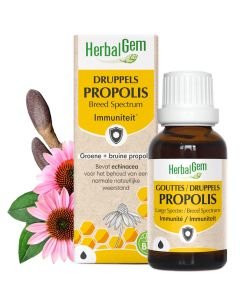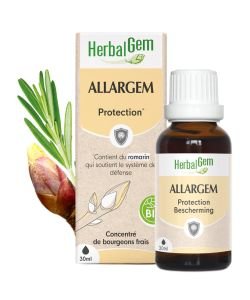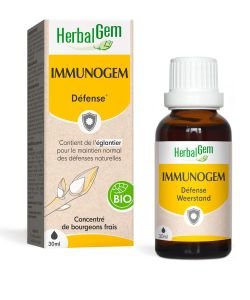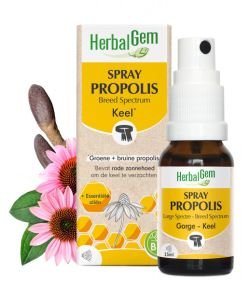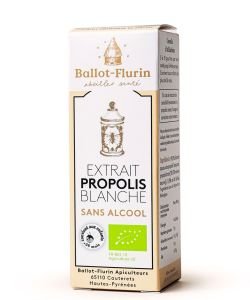Propolis, totally natural, strengthens the immune system.
Complete and totally natural
Properties
Cousine honey, propolis is also made by bees from their secretions and resins they collect from the buds. Transported in the baskets of the back legs, just like pollen, these resins are used by masons from the back to the hive; once transformed into propolis, they serve as mortar patching and sealing to the structures of the hive, but also coating smoothing and sanitizing varnish to the cells where the queen will lay.
Propolis directly in the rough can chew; however, it is generally used after purification, mixed with other substances. Rich in vitamins A, B, C and E, it is full of many trace elements such as manganese, selenium, iron and magnesium. It increases cellular metabolism and effectively stimulates the body's defenses.
Propolis directly in the rough can chew; however, it is generally used after purification, mixed with other substances. Rich in vitamins A, B, C and E, it is full of many trace elements such as manganese, selenium, iron and magnesium. It increases cellular metabolism and effectively stimulates the body's defenses.
Use
- Strengthening the immune system
- Disorders of the respiratory system (nose, throat, ear)
- Skin
- Effective against colds
- Recommended in winter and when the throats and airways are more sensitive
Posology
ADULTS:
Internal use:
- 1-3 drops per day, prevention
- 2 to 3 drops, 3-5 times per day, curative
External use: apply directly mycosesCHILDREN (from 3 years):
- 1 drop in honey (or 1 teaspoon syrup), 1 to 3 times per day.
- Do not put in water.
Special precautions
Not recommended for pregnant women (presence of essential oils)
Composition
- Propolis, 10%
- Alcohol: 50% vol.
- Echinacea
- Oil of Lemon Grass (Cimbopogon citratus)
- Oil of common Cinnamon (Cinnamomum zel.)
- Essential oil Tea-tree (Melaleuca alternifolia)
- Oil of Niaouli (Melaleuca quinquenervia)
- Essential oil of Eucalyptus expunged (Eucalyptus radiata)
Tips
Also available in 50 ml bottle .
Conditioning
15 ml bottle
Herbalgem
Organic Farming Label
Herbalgem
Organic Farming Label
Associated products
Comment (11) -
Comments from others countries
Christiane R.
55-65 years

11/11/2020
Super contre le mal de gorge, mais très difficile à prendre car amer +++
Pierre S.
> 65 years

04/10/2018
Parfait, conforme à mon attente. Super qu'on trouve un petit conditionnement de 15 ml
Héloïse B.
35-45 years

18/01/2018
À fait stagner ma crève pendant une semaine, mais j'ai quand même dû prendre des antibio et cortisone.
Marie France D.
> 65 years

20/05/2017
je ferai le même reproche que pour l'épilobe trop alcoolisé
Valerie M.
45-55 years

02/12/2015
Idéal pour affronter l'hiver
Anne-Laure S.
25-35 years

05/02/2014
un très bon produit. une très bonne marque. un produit indispensable pour moi en période hivernale
Jeanine K.
> 65 years

23/11/2013
4,5/5
Très efficace, surtout utilisé en association avec cassis. Ça pulvérise les maux de gorge
Dominique C.
> 65 years

19/11/2013
Je ne sais encore rien dire au sujet de l?efficacité du produit.
Anne-Laure S.
25-35 years

05/02/2014
un très bon produit. une très bonne marque. un produit indispensable pour moi en période hivernale
Jeanine K.
> 65 years

23/11/2013
4,5/5
Très efficace, surtout utilisé en association avec cassis. Ça pulvérise les maux de gorge
More reviews
Log in to add a comment.New client ?
Start here .
Customers who bought this product also purchased

Copyright© 2004-2025 Idily n°Siret 51151936500015 - VAT number FR65511519365 - VAT number BE0425925218

